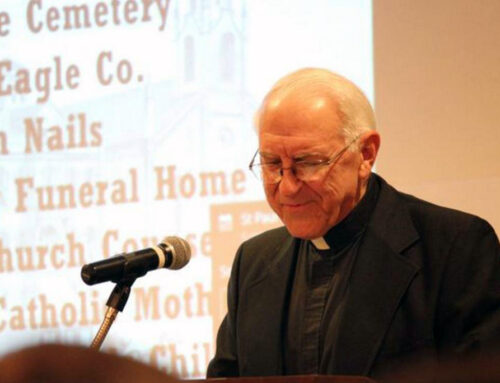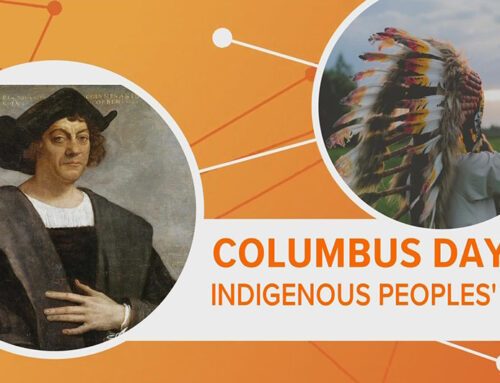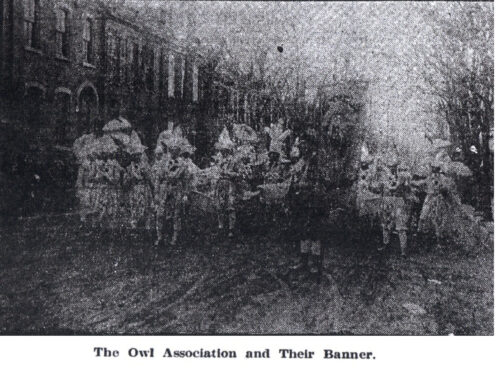The Soldier’s General: Hunter Liggett of the A.E.F.
Big stature, big deeds and straight talk personified the man, Major General Hunter Liggett, born March 21, 1857, somewhere near to the corner of Sixth and Chestnut Streets, Reading, Pennsylvania. (On his return from Europe where he commanded the AEF Third Army of Occupation in 1920, he visited Reading and was quoted as saying he couldn’t remember if he had been born in the corner house at Sixth and Chestnut or in the house next door to it.)
Below: Historical Marker near northeast intersection of 6th and Chestnut Streets, Reading, PA



On other occasions he earned the reputation for being painfully blunt and sharply definitive in his speech. When appointed to command the U.S. 41st Division (1917) in France, he was asked if he didn’t find it difficult for a man of his size to attend to his strenuous general officer duties. He was well over six feet tall and weighed better than three hundred pounds. His reply: “It has never been harmful for a commander to be big or to be fat – so long as the bigness and the fatness are below his shoulders and not above them.”
Liggett graduated from the U.S. Military Academy at West Point in the class of June 1879 and was immediately dispatched to service in the West against the Indians. From the early to middle eighteen-eighties he served in the Arizona Territory when the Apache Chief Geronimo led an Indian uprising that lasted from 1882 to 1886. His western service terminated in 1898 when the Spanish-American War began and he was assigned to service in the Philippines.
Following the cessation of hostilities with Spain, Liggett was promoted to major in 1902 and placed in charge of the Philippine Volunteers during the Moro Insurrection. He remained in the islands until 1909 when he was recalled to the United States and enrolled at the Army War College. Following graduation Liggett was appointed a Director of the War College in 1910 and remained in this capacity until 1913 when he was made brigadier general and elevated to the Presidency of the War College. Tenure as president continued until 1915 when he was reassigned to command the Department of the Philippines and returned to Manila. This tour lasted two years until 1917 and the entry of the United States into World War I against the Central Powers (Germany, Austria, Hungary, Turkey, and Bulgaria).
When the Great War began Liggett was fifty-seven years of age and eligible for retirement (in 1914); however, he attained the rank of Major General and when the United States entered the war he was made 41st Division Commander and sent to France. He was then sixty years of age and was only in France a matter of months before he led the first combat-ready American advance units at the Second Battle of the Marne. He was somewhat less than enthusiastic about America’s entry into the war.
His initial observation regarding our 1917 decision to join the Allies was enunciated in the beginning of his book, “A.E.F.” (first published in serialized form in “The Saturday Evening Post” and then issued by Dodd, Mead and Company in 1927):
“A war begun in 1914, of the complex causes of which we Americans knew nothing. We never believed that it could happen; we could not believe that it had happened; the only thing more incredible was that we could ever be drawn into it. Yet force of circumstances had drawn us in three years later.”
Below: Lt. Gen. Hunter Liggett, A.E.F. – Commanding—41st Division; 1st Army Corps, A.E.F.; 3rd Army Corps, A.E.F.

“With the collapse of Russia in 1917, the day had to be saved again. The Allies were losing very definitely from March to July, 1918. We have their word for it that their backs were against the wall and that they must have help, quickly and in force, or the best they could hope for – and that highly unlikely – was a draw. ”He went on to describe what he believed to be the most influential pressure that was brought to bear as a reason for our becoming involved:
He went on to point out that Second Marne was the crucial test and it came when German strength on the western front was at high tide. The 132,000 fighting men we threw into the breach turned the scales in that crisis, and the 200,000 men we had ready when the Germans were stopped on July 18, 1918 enabled Foch to strike back and wrest the initiative from the enemy. Within four months (by November 1918) he said,
“It was these men and more than 1,000,000 more in the same uniform that enabled Foch to keep the initiative from that moment until the German sued for peace.”
He further detailed the scene by stating that:
“The war ended when the American offensive in the Meuse-Argonne, the greatest battle in American history, after drawing in one quarter of the whole German Army and using up the reserves pulled in from other fronts, had burst on November 1 through the enemy’s last lines in his most sensitive position, severed the jugular vein of his communications (the Carignan-Sedan Railroad) and thereby broken the German people’s will to fight longer.”
There was pride in Hunter Liggett for the country he served and the men he led. But he was not enamored of wartime conditions in France and, when peace came, he was something less than enchanted by the directives which transferred him from command of the First Army Corps to the command of the Third Army of Occupation, headquartered in Coblenz. By 1919 (June 28th) the final peace terms were signed and his Occupational Army duties began diminishing. He wanted out, so he wrote, “I motored to Chaumont and Paris, saw the commander-in-chief (General Pershing), told him there was no longer a Third Army and that I had had enough of Europe.”
Black Jack Pershing replied that he had been expecting Liggett to say that and granted his request. Thereafter, the Third Army was disbanded and the troops remaining on the Rhine were designated as the American Forces in Germany.
He was somewhat happier to report, “I sailed from Brest on July 13, on the Aquitania, with General Castner’s brigade of the Fifth Division, General Dickman and our aides.” Then he went on to explain his feeling of disenchantment with continental life in a discourse he entitled “A Broken Romance.” He wrote:
“France itself was a sorry disillusionment to the American soldier. That the fault was more the American soldier’s than France’s does not alter the fact. He sailed from Hoboken with a romantic picture compounded of the label, “Sunny France,” and a musical comedy conception of Paris. He found there an abominable winter climate unrelieved by American comforts, and a population farther removed from the pages of “La Vie Parisienne” than the people of Berks County, Pennsylvania.
Most of all, I think he never got over the manure pile that is the brightest jewel of the French peasant’s front yard.
Here were two points of view that defied reconciliation.”
Hunter Liggett was a tough, big, physical and plain-spoken man. He had demonstrated scholarly talents whilst still a cadet at West Point and he had much to do with speeding up the modernization and efficiency of the War College when he became, first, its Director and then President. But, mostly, Liggett was a soldier through and through. He showed unusual toughness and devotion to duty during the long hours in the saddle on the trail of Geronimo. And, far more of tenacity and disciplined grit in the green hell of subtropical Philippines country during the Moro Rebellion. He was, in the vernacular of a later war, a “Gl’s” general because he had spent better than a dozen rock-hard years at the straight job of soldiering and that duty had put a most distinctive stamp on him.
When led to comment on the quality of leadership in the A. E. F. he had this to offer about the enlisted men who had served in France:
“The noncommissioned officers of the old army who were raised to the commissioned rank did particularly well.
They had been the backbone of the old Army, and I never knew of a case of failure in France. Numbers are back to chevrons in the Army today, many have returned to civil life, and a few—not enough, in my judgement – have retained their commissions.”
He had a perceptive sense of values in regard to exemplary leadership qualities and was particularly impressed with the young commander of the 42nd Division. That young commander was a brigadier general named Douglas MacArthur.
The big Berks Countian also had a laconic sense of humor and a favorite story concerning the “promising youngster” (MacArthur). It was based on an incident that occurred during the Meuse Argonne Offensive when General Liggett’s First Army Command included the First Division led by Brigadier General Frank Parker and the 42nd (Rainbow Division) under the command of MacArthur. A midnight flap at First Division Headquarters had routed Liggett from his bunk and he hurried to the command post to see what required his immediate attention. When he walked into the tent he was surprised to see MacArthur and virtually his entire staff at the First Division post when, in reality, Liggett was positive that the General had been on the other side of the Meuse with his own men at the 42nd Division’s spearhead position.
He was soon to learn that MacArthur had been “captured” (along with his ranking staff officers) by a First Division night patrol. This is what happened (as recounted in “A. E. F.,” Dodd, Mead, 1927, page 229):
“Douglas MacArthur, then commanding the Rainbow Division, affected a peculiar cap, not unlike that of a German officer. He and some of his staff were grouped about a map this night on the division front when some elements of the First Division burst through and captured him and his party under the impression that they had bagged a German division command.”
He went on to relate that MacArthur had taken the mistaken “capture” with a display of graceful sportsmanship and humor that took some of the sting out of what could have been a sticky and highly embarrassing event. For his own part, however, the response bordered on the testy. After all, he recalled, MacArthur hadn’t been routed from his bunk in the middle of the night and he hadn’t been required to take a wild ride with an Annamite chauffeur over a twenty-mile strip of front line road that lay just under the muzzles of enemy artillery. That “flap” hadn’t been exactly a barrel of laughs in the estimation of Commanding General H. Liggett – a sentiment which he communicated to the subordinates before making his departure.
One could sum up the Liggett saga by describing the subject as a complete soldier, and he was. But he was something more than that, perhaps even more than the complete man or the complete “realist” (a nom de plume he chose for himself). He reasoned with the power of an extremely perceptive and literate man who was also blessed with a fine sense of philosophical balance. This is how he closed his book:
“Money and machinery are the two panaceas of our national medicine chest. Neither can defend liberty, except incidentally, for only men worthy of liberty are equal to its defense. A nation that is rich, vain and unprotected only provokes war and hastens its own ruin; the richer it is, the more it tempts the envy of poorer, sterner peoples; the richer it is, the more likely its people are to be soft, indolent and arrogant. Nor have mere numbers ever saved a nation grown effeminate. It never troubles the wolf, Virgil observed two thousand years ago, how many the sheep be.
As with men, so with nations; it is the fate of the indolent and the timid to see their rights become the prey of the active and the bold. Or, as John Philpot Curran put it:
‘The condition upon which God has given liberty to man is eternal vigilance; which condition, if he break, servitude is at once the consequence of his crime and the punishment of his guilt’.”
Major General Hunter Liggett returned to the United States and after becoming Ninth Corps Area Commander (West Coast) and on his sixty-fourth birthday (March 21, 1921), after forty-six years service to his country, he retired with honors befitting the permanent rank of Major General. An Army post, Fort Hunter Liggett, was commissioned near San Francisco as a memorial to his long term of dedicated service.
Somehow the differences of opinion we hold in regard to the periodic wars that flamed across our pages of past history tend to become so much academic trivia when weighed in the balance with the contributions of men like General Hunter Liggett. For whatever our persuasions, so long as America is peopled and led and served by men such as he, we may be continually spared the consequences of facing the terrible, the unanswerable and the unthinkable question:
What would it be like to lose a war?
To men like him that question loomed larger than life itself and their own lives were the first elements to go into the balance whenever the question arose. For the rest of our philosophical statesmen there will always be room and there will always be time in which to propose and appreciate the qualities of reason, debate and peaceful compromise. Room and time for them to say or to essay whatever they like on behalf of the convictions they hold. But, nevertheless, all of them and all of us will ever be in the debt of men like the soldiers’ general Hunter Liggett, because some people are always concerned with how we should spend our treasure, our time and ourselves, while others are simply charged with footing the bills.
Some people pay for the tickets and others just go for the ride.





